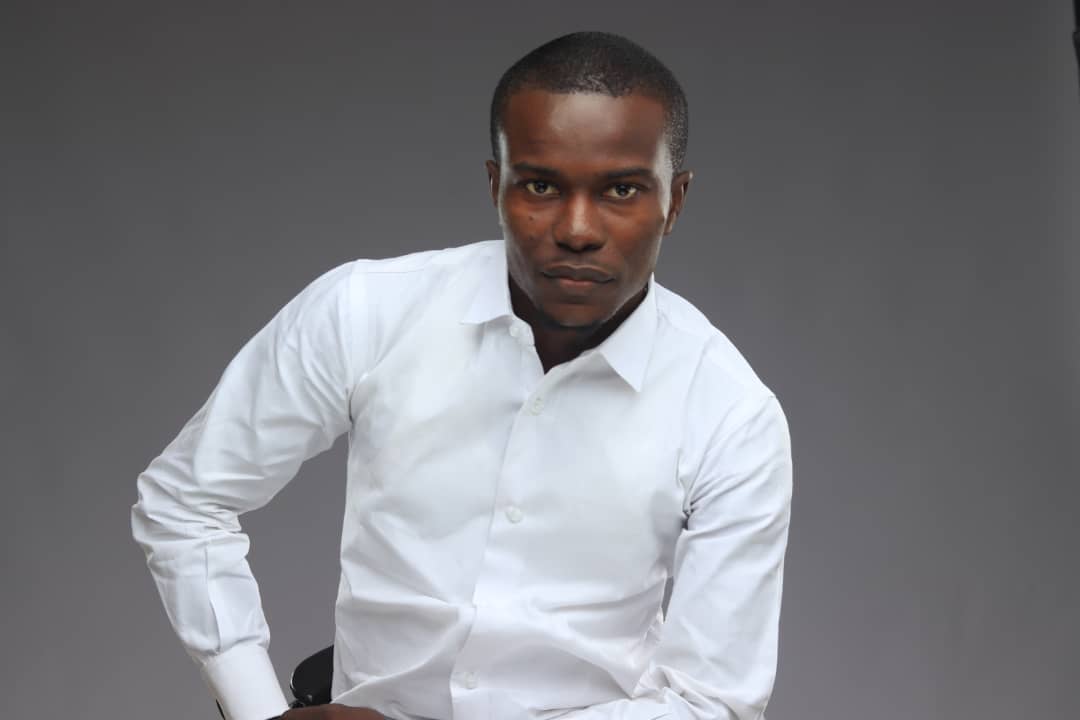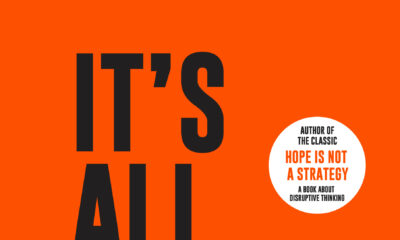Features
Mfonobong Inyang: Important Notes For Writers, Creatives and Content Creators

Most of what I know today about writing and public speaking was self-taught. When I started, I had a flair for expressing but I didn’t have mentors and models that could hone my talents until much later in my personal development journey. I believe in paying it forward; unlike those weird lecturers who enjoy making life for their students owing to the difficulties they face – I opt to make it easier for those coming behind me by doubling down on knowledge-sharing. As a way of putting others on the game, I came up with creative yet instructive pearls about the craft of writing.
Today, I get a lot requests from people asking me to teach them how to write. But my response always stuns them. First, I tell them that they are already doing some sort of writing whether in their academics, at the workplace or even via social media. Second, I tell them that the first thing about writing isn’t writing – it’s thinking. Every great thing that has ever been created is rooted in the quality of thoughts. A famous Japanese car manufacturer in the 90s released an ad which captured the minds of the world; not just for the design of the vehicles but more for the tagline: “Yo shinai, Yo kangai” – which is loosely translated as “Good thinking; good product”.
In the book of Genesis, which is Moses’ account of creation, he starts by saying, “In the beginning, God created.” However, in John’s account of creation which thematically underscores the divinity of Christ, he starts by saying, “In the beginning was the Word”. These two introductions are important because in the etymology of the text, the original term for “Word” is “Logos” which means thought or thinking. What that tells us is that the calibration of creation as we know it wasn’t mere happenstance or some Big Bang theory but a result of intelligent thinking. Before there was any speaking, there was a “brooding over the waters”. Interestingly, the word “brood” doesn’t only mean to think deeply, it also describes how birds hatch their eggs – bringing ideas from the abstract to the concrete. That’s one of the ways you can activate your God mode as a creative or content creator.
Without equivocation, the Creator Economy is in full swing. People are better positioned to earn from content creation than at any other point in modern history. The prospects of monetising content have become both a blessing and a curse; some people have used their content to enhance their thought leadership while others have succumbed to their primal instincts to do anything for clout – including doing or saying dumb things with the hopes of going ‘viral’. However, controversy is not a strategy that works for everyone; what is sauce for Guinea might not be sauce for Uganda.
Gwo Gwo Gwo Ngwo!
When comedian, Chukwuebuka Emmanuel Amuzie, better known as Brain Jotter, used a song by Gentleman Mike Ejeagha, a veteran highlife singer in a skit, little did he know that the song that was recorded over four decades ago would not only bring about a celebration of the living legend but also usher him into notoriety. While the internet is awash with the viral dance from Brain Jotter’s skit, it was not lost on me that the song itself is a masterclass in storytelling. Ka Esi Le Onye Isi Oche, the song to which the now-popular refrain has assumed a life of its own, speaks about the classic mischievousness of the tortoise, who devised a cunning way to capture the elephant who was wanted by the king over his indiscretions. Using wit, the tortoise lured the elephant to the palace by misleading him into thinking he was being appointed as the chairperson of a famous festival.
Owing to their unique shared experiences and the misrepresentation of history against them, the South-Easterners mostly preserved their culture from one generation to another orally – as such they became storytellers by default. Mike Ejeagha belongs to the prestigious pantheon of Akuko-na-egwu (story-in-music) that includes Chief Dennis Osadebe, Jim Rex Lawson, Onyeka Onwenu, Oliver De Coque and Flavour N’abania. I remember going through my dad’s vinyl records that year, it made me look up Bright Chimezie’s song, African Style and his signature Zigima moves. He shared his hilarious adventures in Oyibo man’s country (Ala bekee) where foreigners called the cops on him while eating ogbono soup because, in his words, they thought, “The black man wey dey here is committing suicide o!”
The narrations in their music made us realise that it is wrong to put out content mindlessly. Tell a compelling story that will make the content stand the test of time, like Mike Ejeagha’s gwo gwo gwo ngwo.
Value or Vibes? Na Collabo!
Originality works for me, why I no go show? No be lie! There are times when I create content to educate and other times it’s to entertain. Most times I do both because I realise I can walk and chew gum simultaneously. I know how to be bourgeoisie and also be ratchet – anyhow e be, I go play my part. As much as I have a niche, I also show my range on a variety of topics as I have done recently: faith, culture, music, movies, geopolitics, and sports entertainment. One mistake most content creators make is to litter their work with buzz words without depth; once people realise that you’re just riding the wave, they will move on. Buzzwords are not a replacement for great content; they should be the icing on the cake and not the cake itself.
Jira! Jira!! Jira!!!
Every content creator should have a signature; whether it’s overt or covert; there must be certain features that stand you out from others. It could be how you talk, how you dress, a certain phrase you use or how you edit your videos. Dan Bello has a signature phrase for his TikTok videos, “Jira! Jira!! Jira!!!” If you watch any of his skits and you don’t hear that phrase, you somewhat become disappointed. A signature could also be niche content like politics, health, food, business and technology. One of my signatures is intelligence, regardless of what the topic is, I do my best to share intelligent submissions on the subject. It doesn’t necessarily mean that I am always right, it just means you can count on me to put an intelligent spin on my thoughts and not to insult the sensibilities of my audience by putting out pedestrian arguments. A brand is a promise to internal and external stakeholders that they will consistently find congruence between the expectation and experience of a product.
RRR
Real recognises real. Although we throw the words around a lot, there is really nothing like a global audience – at best we are creating content for core and peripheral audiences. One of the ways you know a master storyteller is his or her use of language because messaging tells me what demography your content is designed for. Communication requires emotional intelligence; your choice of language, whether formal or colloquial, is a nod to your target market. A register is a peculiar vocabulary that applies to specific communities, once you know how to navigate it. Don’t get me wrong, 99% of my writing that you never get to see (as a ghostwriter) is strictly formal because it borders mostly on corporate communications. However, when creating content for phone-pressing demography, I switch it up. Nobody wants to go on the internet and read a dissertation. So whether I am being serious or jonzing, there is a method to the madness.
The Lifestyle Cost But Some Clients No Know
See what you do from three perspectives: art, business and politics. For example, football is not just a sport (art), it’s more of a business and it’s also being used for image laundering or public relations (politics). After creating content that makes sense, you have to ensure it makes money. Charging clients for your work is very important; you must have a scientific pricing model. Know your competence level and what your skillset commands in the marketplace. Learn to deconstruct the value proposition to clients so that they see paying you as an investment, not a cost. In this country wey billing dey everywhere and inflation no be your mate, you have to be active when selling yourself because these days even one million no dey last again. You can even sign up with a talent management company just like Layi Wasabi is plugged into Penzaarville Africa so you can focus on churning out content while experts take care of business for you.






















